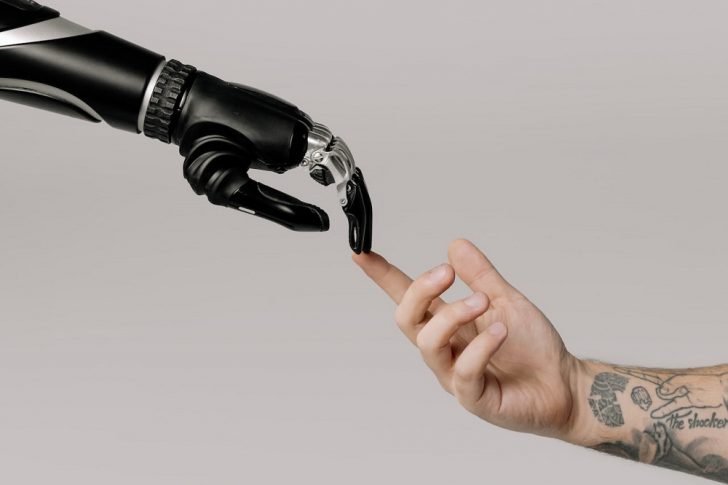
AI’s Hidden Toll on Our Brains

Artificial Intelligence (AI) has permeated almost every facet of our lives, from virtual assistants and recommendation algorithms to autonomous vehicles and healthcare diagnostics.
While AI undoubtedly brings numerous benefits, its hidden toll on our brains is a topic that has been largely overlooked. This article explores the cognitive costs of our increasing dependence on AI and delves into the potential consequences for our mental faculties.
Reduced Critical Thinking
One of AI’s most significant hidden tolls on our brains is the erosion of critical thinking skills. With AI algorithms continuously providing us with ready-made answers and solutions, our ability to think critically and solve complex problems may gradually diminish.

Pixabay/ Pexels | Balance is key; use AI as a tool, not as a crutch for your cognitive abilities
When we rely on AI for decision-making, we may become passive recipients of information, accepting it without questioning or evaluating its accuracy. This can lead to a decline in our capacity to analyze, reason, and make informed judgments independently.
Deteriorating Memory
Another hidden toll is the impact of AI on our memory. We have grown accustomed to offloading information and tasks to AI systems in the smartphones and digital assistants age.
While this may seem convenient, it can weaken memory retention and recall abilities. When we rely on AI to remember phone numbers, appointments, and historical facts, we rely less on our cognitive faculties to store and retrieve information.
Reduced Creativity
AI can also take a toll on our creativity. Creative thinking often involves generating novel ideas, solutions, and artistic expressions. However, when AI algorithms analyze our preferences and provide content tailored to our past choices, it can lead to a creative echo chamber. By consuming only what AI deems suitable for us, we may miss the serendipitous discoveries and diverse influences that stimulate creativity.

cottonbro studio/ Pexels | The art of problem-solving is a beautiful dance between human ingenuity and AI assistance
Social Isolation
AI-driven virtual assistants and chatbots are becoming more sophisticated in providing companionship and conversation. While this can benefit some individuals, it also raises concerns about social isolation.
As people turn to AI for interaction, they may spend less time engaging with real-life friends and family, declining their social skills and emotional intelligence. The toll on our brains includes a diminished ability to navigate complex social dynamics and read non-verbal cues.
Loss of Empathy
Empathy, the ability to understand and share the feelings of others, is a fundamental aspect of human connection. However, AI’s hidden toll on our brains includes a potential reduction in empathy.
When we interact primarily with AI-driven customer service representatives or rely on AI-powered empathy training programs, we may become desensitized to human emotions and needs. This could lead to a decline in our emotional capacity to relate to and support one another.

Keenan Constance/ Pexels | In a world increasingly connected by AI, let’s not forget the value of authentic human connections
Mental Overload
As AI systems continue to increase, we are bombarded with growing information and notifications. This constant data stream can overwhelm our cognitive resources and lead to mental fatigue. The hidden toll here is the stress and anxiety caused by the relentless barrage of information, which can impair our concentration, decision-making, and overall mental well-being.
Dependence on AI for Problem Solving
AI’s ability to solve problems quickly and efficiently can be a double-edged sword. While it saves time and effort, it may also encourage us to avoid tackling challenging issues ourselves. When AI becomes our go-to problem solver, we risk losing our motivation and confidence to confront and overcome difficulties independently, declining our problem-solving skills.
More in Mental Health
-
`
Hair & Makeup Designer Sarah Rubano Talks Turning Mia Goth Into Pearl
Transforming an actor into an unrecognizable character is no small feat, and Mia Goth’s Pearl makeup in the hit movie “Pearl”...
December 17, 2024 -
`
The Physical Signs of Hunger and How Mindful Eating Makes a Difference
Hunger is one of the most basic yet essential signals our body uses to communicate its need for energy. However, many...
December 15, 2024 -
`
Why Did Chris Pratt Call Anna Faris Before Proposing to Katherine?
Chris Pratt, the beloved star of “Guardians of the Galaxy,” made headlines when he revealed that he called his ex-wife, Anna...
December 3, 2024 -
`
6 Proven Tips to Tackle Insurance Claim Denials Successfully
Claim denials are a common hurdle for healthcare providers and professionals, even for those who follow the necessary procedures to avoid...
December 1, 2024 -
`
5 ‘Bad’ Fitness TikTok Trends You Shouldn’t Follow
TikTok has become a haven for creative fitness advice. But not all trends are worth your time or your health. From...
November 23, 2024 -
`
Does Drinking Water Affect Adrenal Hormones?
Drinking water is often seen as a simple way to stay hydrated, but it has deeper effects on our body than...
November 14, 2024 -
`
Why We Feel the Loss of Celebrities So Deeply?
Celebrity grief might sound strange at first. After all, most of us have never met these famous figures in person, yet...
November 5, 2024 -
`
Are High Deductible Insurance Plans as Ideal as They Appear to Be?
High deductible insurance plans have been a hot topic for years, especially as healthcare costs continue to rise. For many Americans,...
October 31, 2024 -
`
How Training Load Data Can Transform Your Exercise Routine
Tracking progress during workouts is challenging. Simple metrics like mileage or time don’t show the whole picture. Understanding the overall effort...
October 26, 2024















You must be logged in to post a comment Login